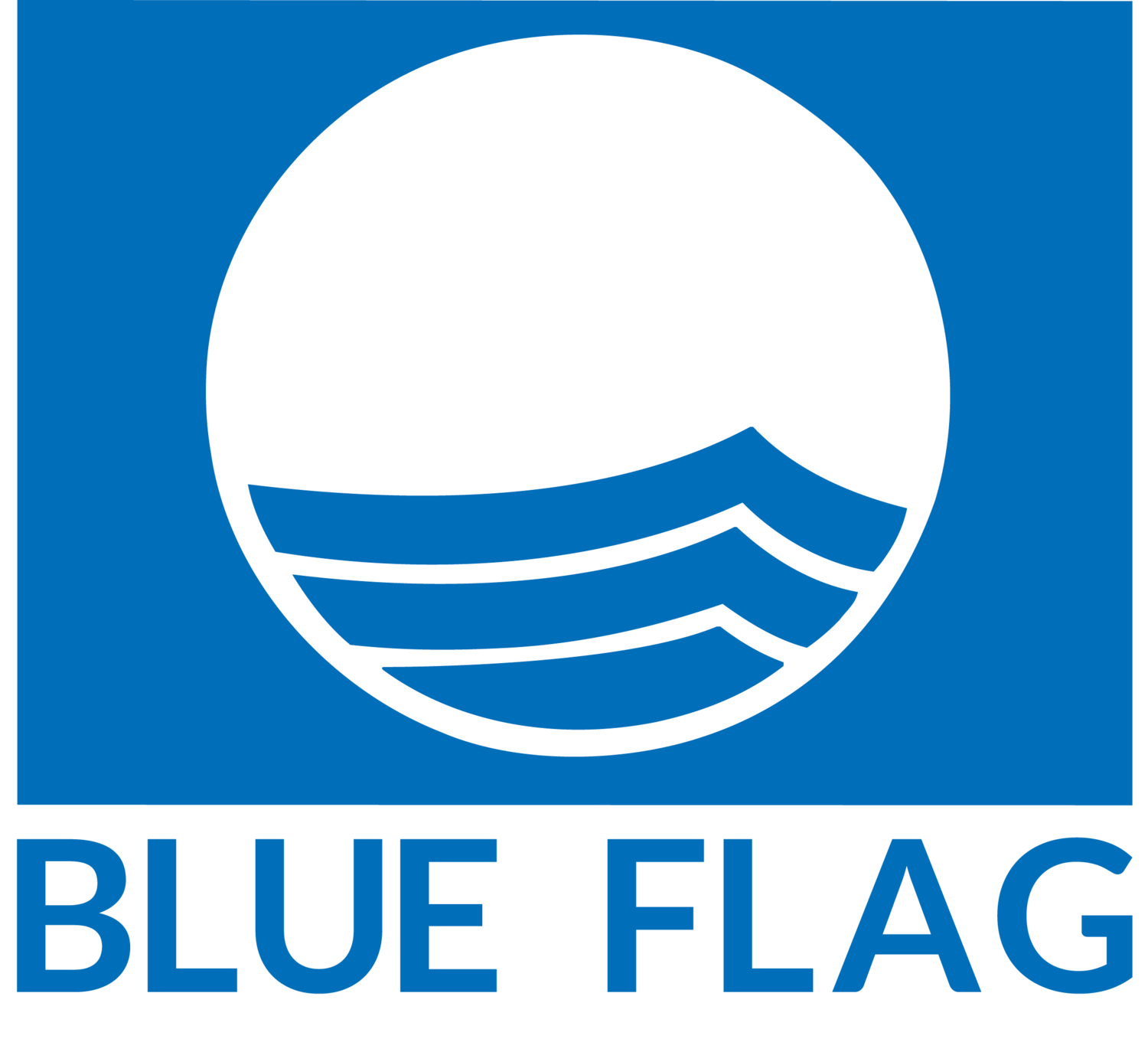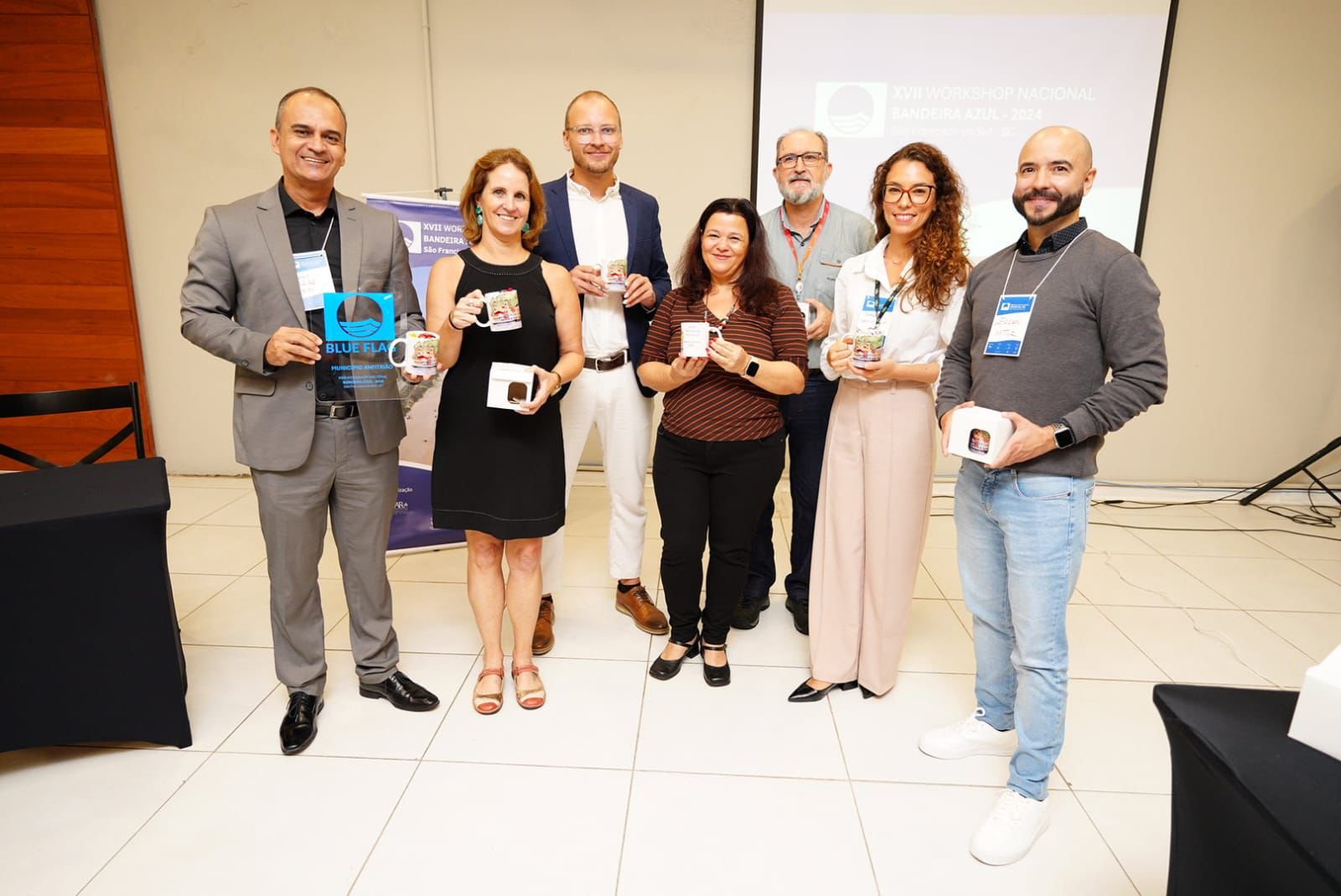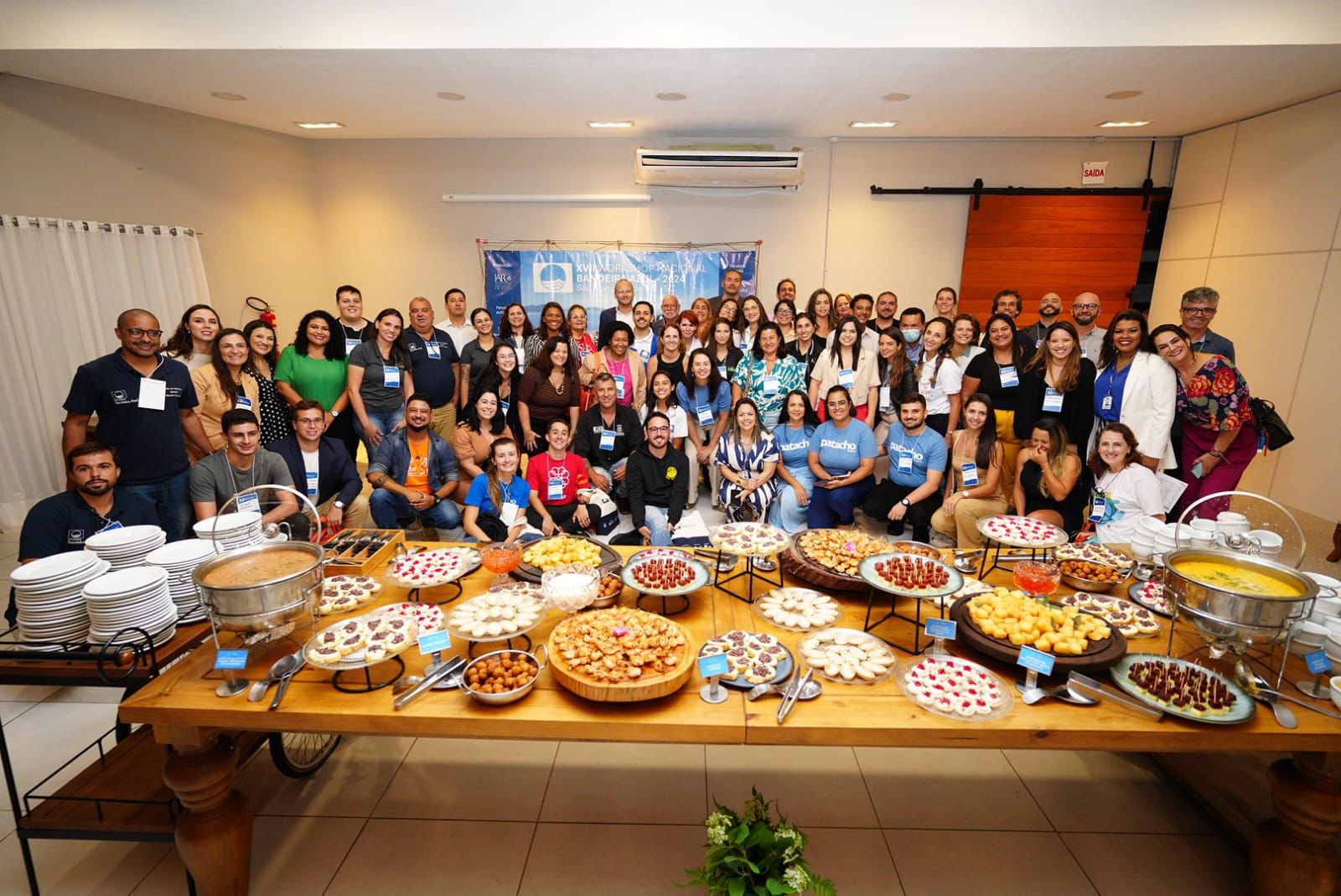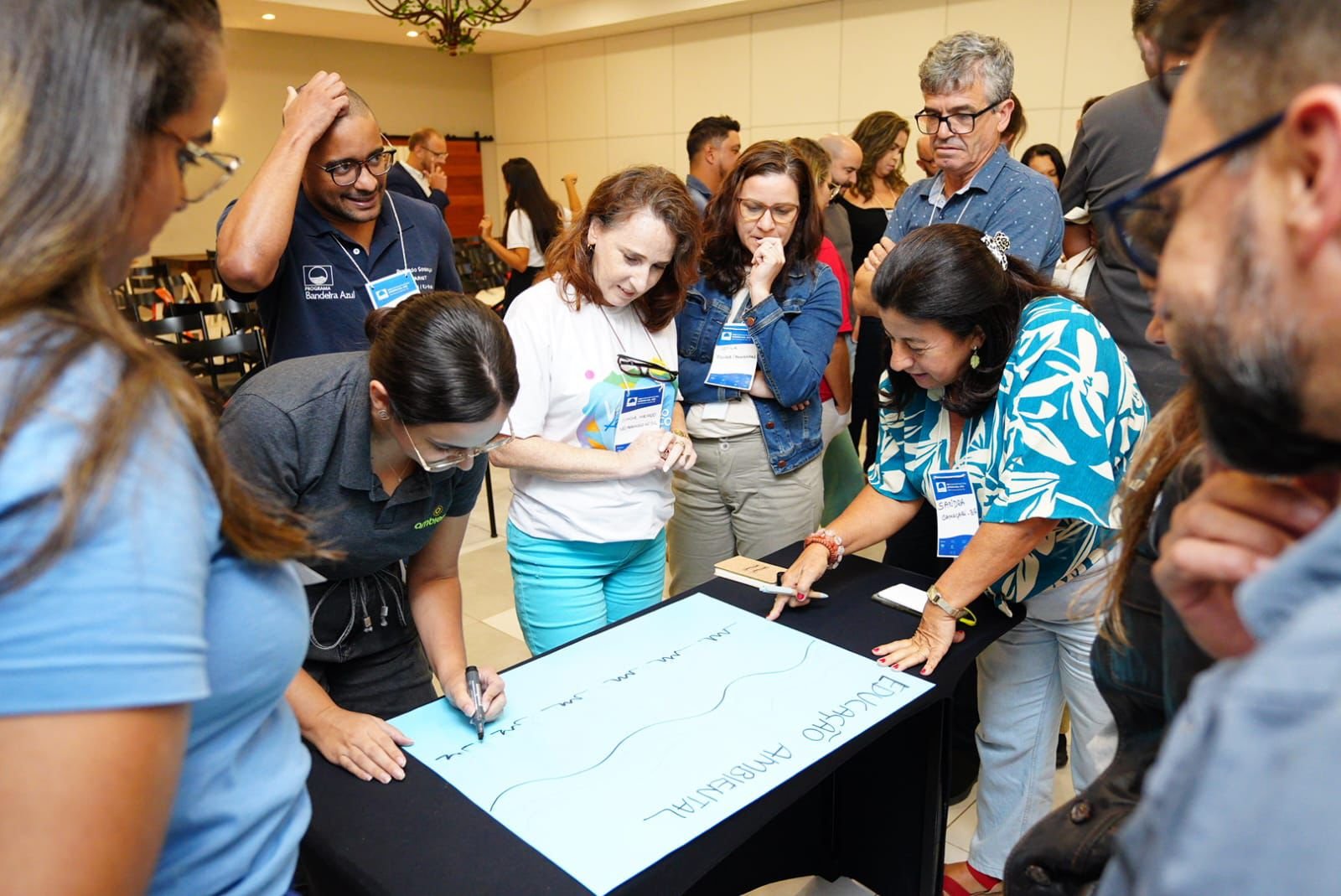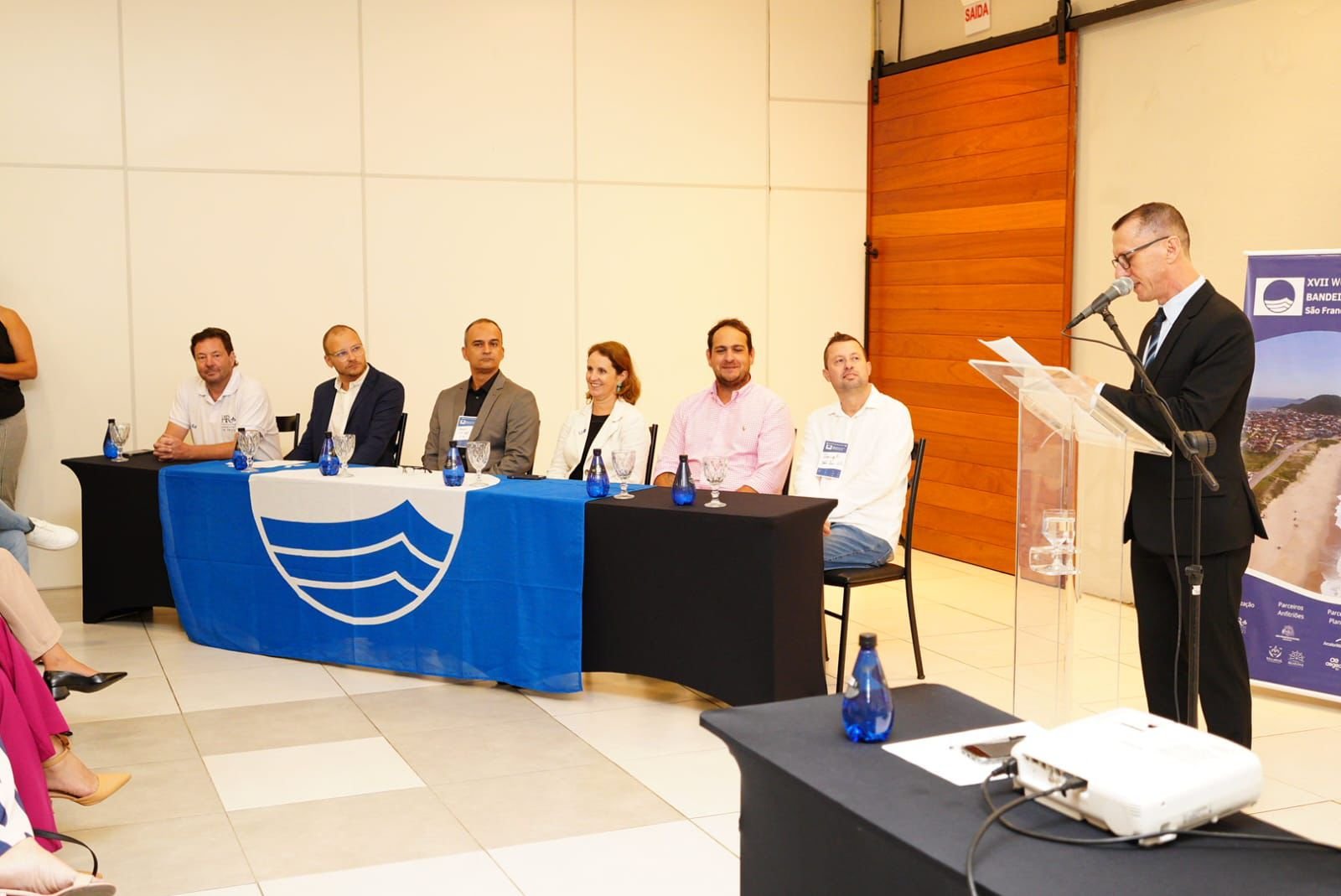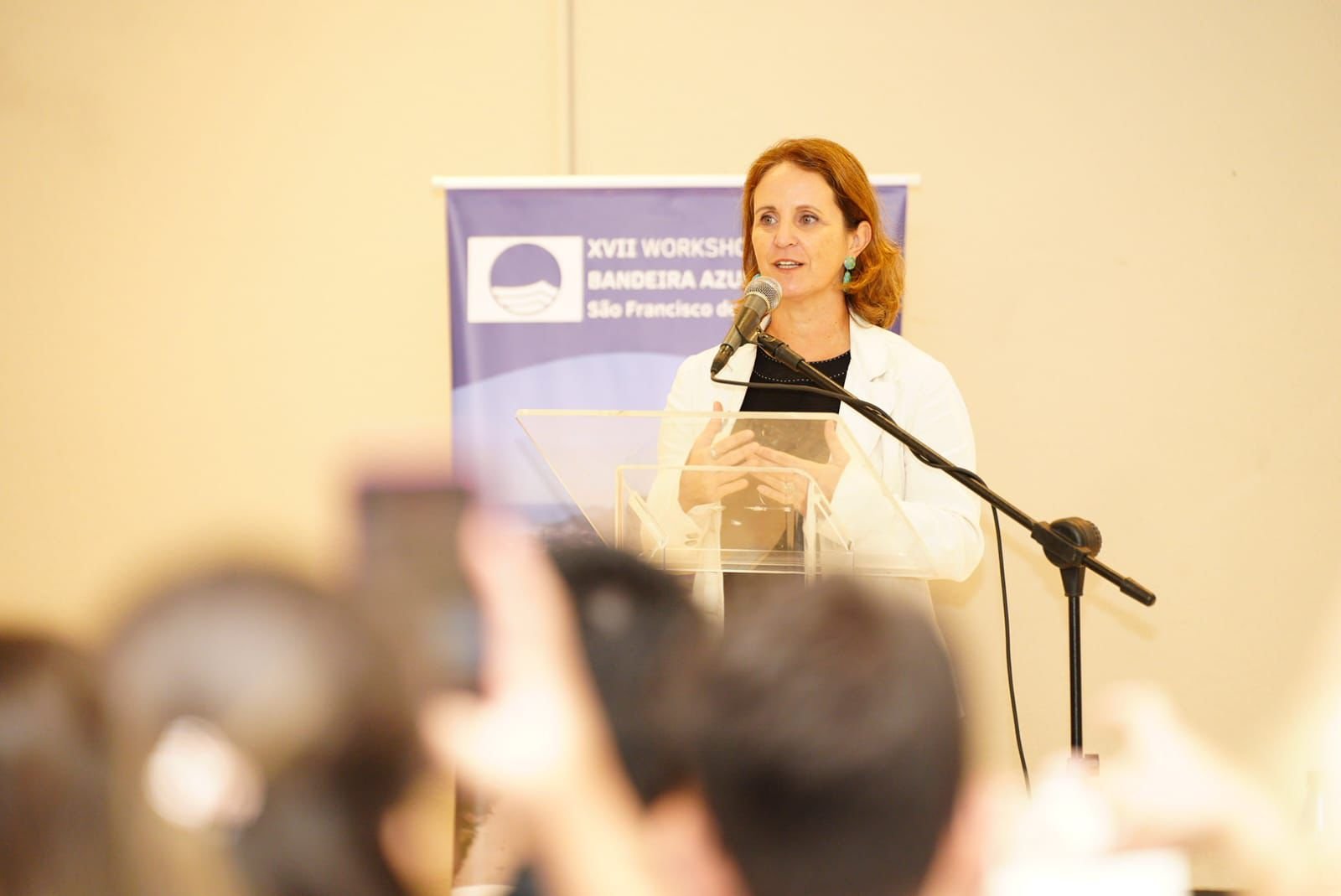Blue Flag Brazil, in partnership with the City of São Francisco do Sul, held the XVII edition of the National Blue Flag Workshop, focused exclusively on beaches. The event took place on the 26th and 27th of April, at the Villareal Hotel, São Francisco do Sul, and allowed beach managers and municipality representatives to join a dialogue about the programme.
This year’s edition of the National Blue Flag Workshop encouraged the attendees to clarify their doubts regarding the Blue Flag programme and discuss topics such as the programme’s criteria, renewal processes for the award, and procedures for a beach entering a pilot phase of the programme.
Representatives from local and national institutions were brought together, including functionaries from the Municipality of São Francisco do Sul, the local Department of Tourism and Environment, the Ministry of Tourism (MTur), the Secretariat of the Union's Heritage (SPU), the Brazilian Agency for International Tourism Promotion (Embratur) and the Brazilian Society of Aquatic Rescue (Sobrasa), the Regional Council of Veterinary Medicine of Santa Catarina (CRMV-SC) and the Nila Institute. The workshop was also joined by technical managers, secretaries of tourism and environment of the six awarded states in Brazil.
Over the two days, multiple lectures and presentations were given. Edson Teixeira Viana Barros, the coordinator of sustainability and climate actions in tourism from the Ministry of Tourism, highlighted the relevance of sustainable tourism with low carbon emissions.
He presented strategies to mitigate the carbon footprint in the tourism industry, advocating for ecologically responsible practices. His lecture also underlined the need to invest in ecologically conscious tourism infrastructure, as well as to promote destinations that embrace environmental conservation and the richness of local culture.
Rafaela Lehmann Herrmann, a representative of Embratur, presented communication tactics for the international promotion of beaches awarded with the Blue Flag. She explored the possibilities of using the ‘Sand and Beach’ tourism destination image in the global promotion of Brazilian beaches, recognising the segment as one of the most sought-after in multiple countries and markets.
The emphasis was placed on promoting Brazil as a destination of sustainable and responsible experiences, that prioritises quality and safety. Herrmann also shared some practical examples of how the Brazilian Agency for International Tourism Promotion is trying to achieve this objective, such as participation in international fairs and events, or marketing campaigns abroad.
Veterinarian Paulo Augusto Aragão Zunino, from the Regional Council of Veterinary Medicine of the State of Santa Catarina, brought up the question "Dogs on the Beach - Why not?", revealing the risks to the physical health of pets when taken to the beach, including the exposure to high temperatures, ingestion of salt water, contact with toxic substances present in the sand, and the possibility of being involved in accidents or conflicts with other animals.
At the end of the presentation, he highlighted the importance of promoting practices that ensure the well-being and safety of dogs, as well as preserving the harmony of the coastal environment.
Besides, the participants of the National Workshop had an opportunity to deepen their knowledge of the Orla project, an ongoing initiative of the Environment Ministry and the Planning Ministry on coastal management.
Samanta Cristiano, from the Nila Institute, shared her experiences related to the initiative, pointing out the need for adapting the project to specific realities and interests of each municipality. She then explained the vital role of social participation and cooperation in securing the success and sustainability of initiatives related to the waterfront.
Also, the advances and challenges of the Orla project were presented by Wagneide Rodrigues, from the Federal Heritage Secretariat. She shared the progress of actions related to the implementation of measures to protect and conserve the seafront, the revitalization of degraded areas and the promotion of sustainable development in coastal regions.
Once again, the indispensability of collaboration between different stakeholders – government, businesses, non-governmental organisations, and local communities – was stressed, as well as the importance of municipalities’ integrated management plans for the shoreline, articulation capacity, environmental conservation, and terms of adhesion to beach management.
Lastly, the event inspired the exchange of experiences on environmental education activities by different parties. Success stories of good practices from awarded beaches in various regions of Brazil were shared, including the testimonials from Praia de Itá – SC, the first awarded river beach in the Americas. Additionally, oceanographer Luigi Marchese, who is also responsible for promoting environmental education on the beaches of Bombinhas/SC and Balneário Camboriú/SC gave his insights into effective beach management.
During the second day of the 17th National Blue Flag Workshop in Brazil, the atendees were also invited to participate in a drowning prevention activity promoted by Sobrasa.
The whole National Blue Flag Workshop was sponsored by Hotel Villareal, Villa Real Marina, Arcelormittal, Aegea SC, SC Bulk Terminal and Ambiental, and the City of São Francisco do Sul – located in the north of Santa Catarina, it is the only city in Brazil that has as many as four Blue Flag beaches within its borders.
As part of the workshop, the participants had a chance to enjoy a tour around the city's historic center and visited all four Blue Flag sites.
"It is with great joy that we welcome public managers from all over the country to explore the natural riches of our region and witness the efforts of local institutions in the search for this renowned international award, which attests to the quality of our beaches. São Francisco do Sul is recognised as the 'bluest' city in Brazil, with the largest number of awarded beaches. Our hope is that our four awarded beaches – Praia do Ervino, Praia do Forte, Praia Grande and Praia da Saudade – will serve as an inspiration to other Brazilian states when it comes to preserving our beaches" said Sérgio Murilo Carvalho Oliveira, the deputy mayor of São Francisco do Sul, showing his immense satisfaction in hosting the workshop.
Leana Bernardi, National Coordinator of the Blue Flag Program, expressed her gratitude for the success of the event, calling it ‘a crucial moment for meaningful interactions between participants’. She also highlighted her contentment about the workshop becoming a platform for exchanging knowledge, experiences, solutions, and ideas, that are essential for the further progress and improvement of the Blue Flag programme in the country.
Visit the website of Blue Flag Brazil or read more about the XVII National Blue Flag Workshop (Portuguese only).
